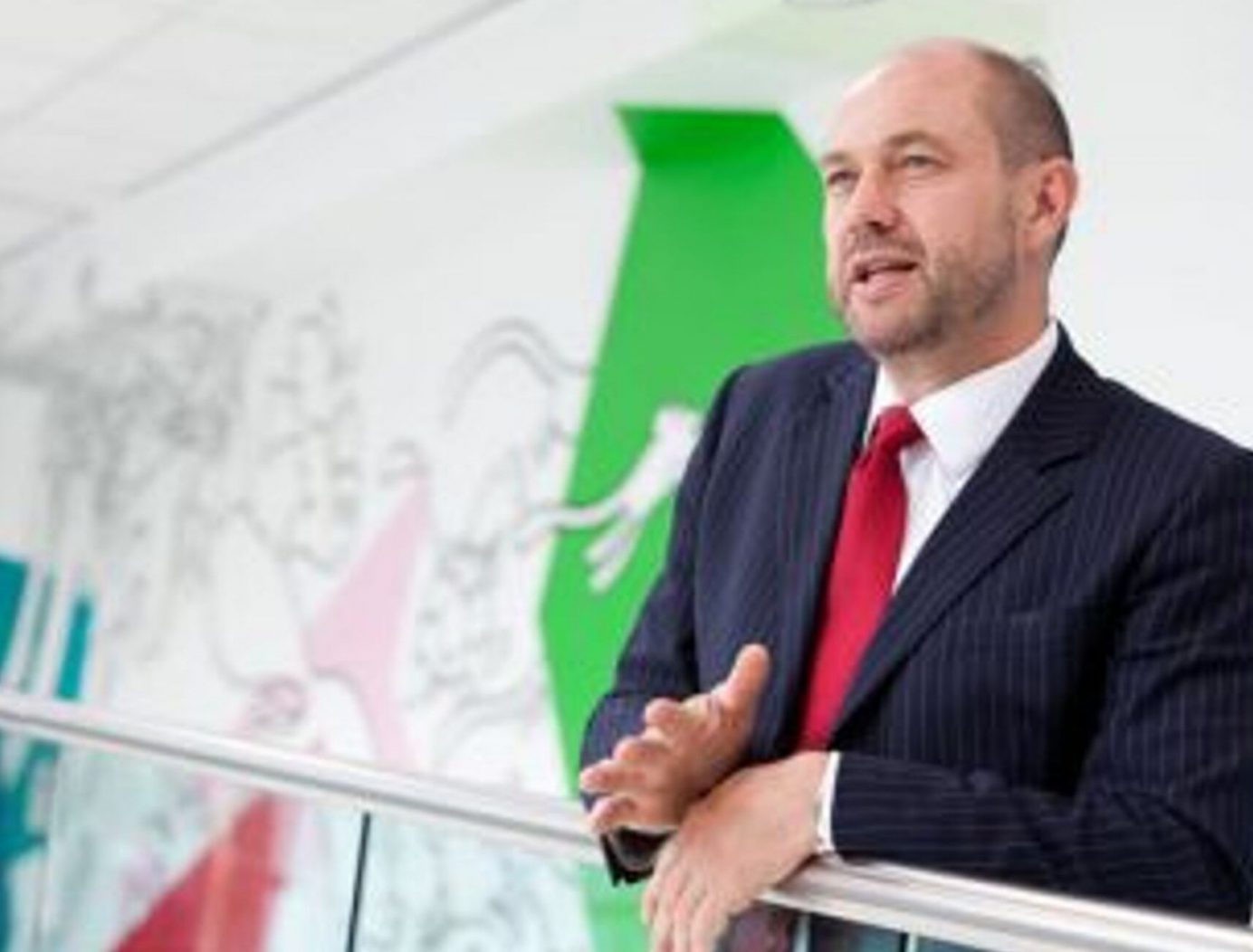
The Importance of Family-Centred Care: Dr. David McCormick
September 19, 2019
Sadly thousands of children every year need specialist medical treatment, and the road to recovery can be long and difficult. We spoke to David McCormick, a Consultant Paediatrician and Clinical Lead in Paediatric Neurosciences at King’s College Hospital in London, about the families that he helps and how they are supported by Ronald McDonald House Camberwell.
The paediatric neurology service at King’s College Hospital specialises in diagnosing and treating children with epilepsy, head injuries and other brain and spinal conditions. It is a regional centre equipped to deal with the most complex cases, serving about four million people living in South East London, Kent and East Sussex; and due to the centre’s capabilities, children are also sent to King’s College Hospital from all over the UK to receive specialist treatment for a range of conditions.
David explains why Ronald McDonald House Camberwell is so important and how it helps his patients recover:
FAMILIES TRAVEL A LONG WAY FOR THE HELP THEY NEED
“Any child living in the South East Thames area suffering with a brain tumour, brain abscess, traumatic brain injury or any other condition that requires neurosurgical intervention have to come to us; this is the only hospital that can treat them. We’re also helping children with epilepsy and serious head injuries, and we support them to recover from surgery and brain injury by providing specialist neurorehabilitation.
“Nationally, there’s a limited number of paediatric neurology centres, so parents can find themselves many miles away from home for a number of weeks or months while their child undergoes treatment and recovers well enough to go home or be transferred back to their local hospital. We’ve had families from Leicester and elsewhere in the UK travel to us for neurosurgery and then their child has undergone a long journey of rehabilitation in order to function again.”
PARENTS NEED TO STAY CLOSE-BY
“Children check repeatedly for the presence of their parent. Hospitals are frightening places where painful things happen and it’s full of unfamiliar people and things; it’s really important they know that their parent is with them or very close-by. And it’s just as important for teenagers too, I think they need reassurance and support just as much if not more than younger children.
“The parents themselves are often traumatised because their child may have had a sudden event like a brain haemorrhage and the parents may be injured themselves if for example, the family was involved in a road traffic accident. Getting their head around how and why this has happened and worrying about whether their child will be changed as a result is a lot to deal with. They need to be near their child for their own emotional wellbeing but it’s also vital for the child to have their parent close-by. We know from modern paediatrics that children recover better when they have the emotional and physical support of their parents.
“We don’t have one-to-one nursing on the ward, so having parents able to help support staff with feeding and dressing is good, it’s important to integrate the parents with their child’s routines and therapy to ensure they understand and can fully support their recovery.
“My team work hard to help patients recover; we aim to get the majority of children home without needing further hospitalisation but it can take many months to get to that stage. I’ve got a teenage boy having treatment, whose Mum is staying at Ronald McDonald House Camberwell, he had a stroke in May and due to illness, wasn’t able to start our rehabilitation programme until September and he won’t be able to go home until at least December.
“For some parents it’s like seeing a new child develop and negotiate all of those baby milestones again; learning to sit, talk, stand and walk. It’s extremely important for them to see their child progressing forwards, re-developing the skills they’ve lost, and staying at the House enables them to be there and not miss those landmarks on the road to recovery.
THE HOUSE HELPS KEEP THE FAMILY UNIT TOGETHER
“We do our best to facilitate a parent at their child’s bedside but it can become completely exhausting for the parent. We’ve got nurses coming in and out all night, there are children crying and we need parents to be well-rested to support their children so it’s important they can go to the House to sleep and its best for the child and their recovery. I think the parents also benefit from having a quiet place to retreat to and process what they’re going through because they can’t be on the ward 24/7 and keep going. The House is so close to the ward that if they’re needed, they can be back at their child’s bedside within minutes.
“We see parents use the House as a way to get the whole family together at weekends and during school holidays, so their sick child can see their siblings and grandparents. There is also growing evidence that brothers and sisters can also be traumatised because all of a sudden they’re separated from their sibling and don’t know what’s going on and they feel isolated, so having somewhere to stay with their parents so they can all visit together is important.
“The House helps keep families closer together, but it also keeps parents together; we can only ever accommodate one parent by their child’s bedside but the House can accommodate both and ensure they re-group and support each other and that’s important; we know that there is often marriage breakdown following the serious illness of a child.
“I think parents put on a brave face with us; I’ve spoken to staff in the house and they’ve told me that they have parents breaking down and needing to talk things through, and the staff at the House play an important role in supporting the parents. It’s only when the parents are away from the ward that they’re able to let their guard down and talk about their fears and feelings. Without the House there is a risk that parents would find things too overwhelming and withdraw. Ronald McDonald House is one of the tools we have to help keep the family unit together, functioning well and supporting the child.”
REHABILITATION AND RECOVERY IN THE HOUSE
“Sick children are on the ward nearly all the time, but if the child is well enough, they’re able to go back to the House with their parents for a change of scene, maybe sit in the garden and spend time in a more normal environment with their family. We find this is very helpful for the child and it aids their recovery.
“In the initial phase of rehabilitation, we need the patients on the ward, but as they get better we like to support them in what we call real-world environments so they learn to live again in an everyday setting. My team go over and run sessions in the House with patients and their families to help them adjust to normal life. They can also stay together at the House right before they go home to acclimatise without such close support to see how they get on, with us close-by should they need help.
“Another aspect of what we do is peer integration. Teenagers in particular recover, go home and then find themselves isolated from their peers because they’ve been away for a long time, they might be different and their friends are unsure about how to be around them. Before they go home we arrange a special event at Ronald McDonald House and invite their friends for a movie and pizza night or something like that. They tell their friends what’s happened, how they are now and what things will help them, and we have staff there to answer questions. These events have been very successful; their friends are worried and often don’t know what to expect. It’s an ice breaker and we can’t do it in the hospital, Ronald McDonald House is a safe and neutral environment where they can spend time with their friends in a normal setting to reassure and start putting their life back together again.”
Help us provide free home away from home accommodation to support families with children in hospital with a donation.

